This past May, six ATA and CET staff members traded their offices in downtown Washington, DC for a farm in Puerto Rico. Instead of developing travel experiences, they spent time helping redevelop a community devastated by Hurricane Maria. They were part of the 18th summit of Tourism Cares, a non-profit that unites members of the travel industry to make a positive impact on destinations in need.
Along with some 150 volunteers representing everything from AFAR magazine to travel insurance companies, our staff members worked on a project linked to renowned chef and do-gooder José Andrés’s World Central Kitchen (WCK). Andrés famously arrived on the island in 2017 to make and deliver food in the immediate aftermath of the hurricane, but his efforts there since aim to strengthen Puerto Rican communities for the future. Through WCK, he is developing community kitchens and sustainable agricultural programs that will allow Puerto Ricans to rely on their own produce—not imports—if and when the next storm hits. Our team was based on a farm in Yauca, and spent time working in conjunction with WCK, planting trees to prevent erosion, repainting community buildings, and more.
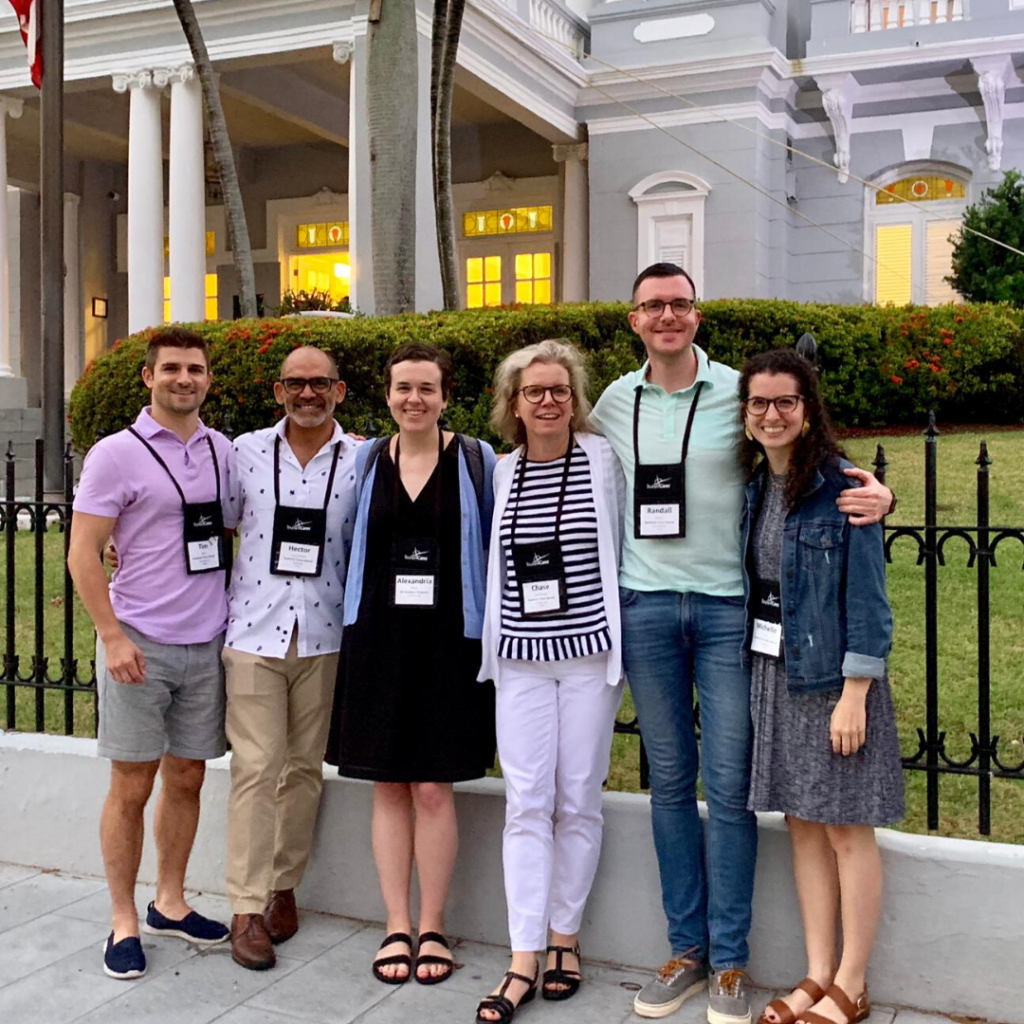
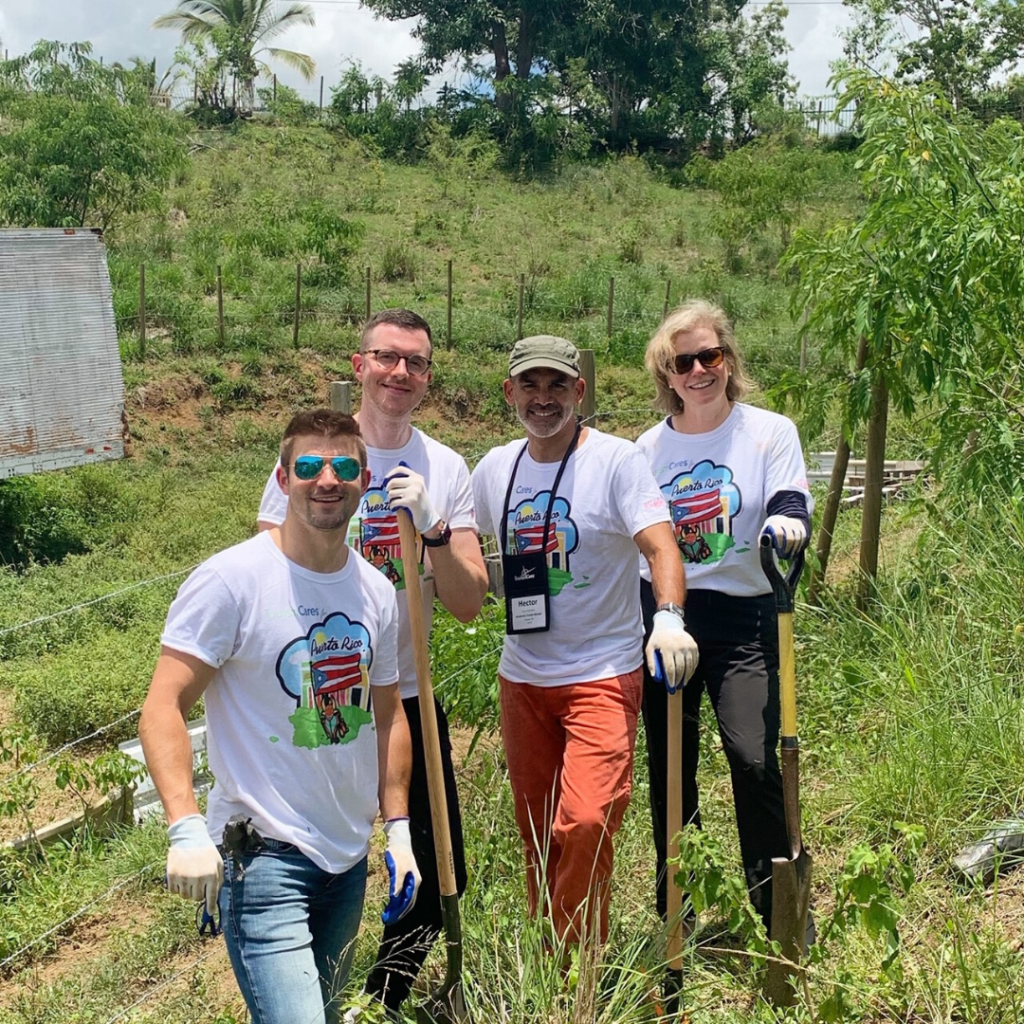
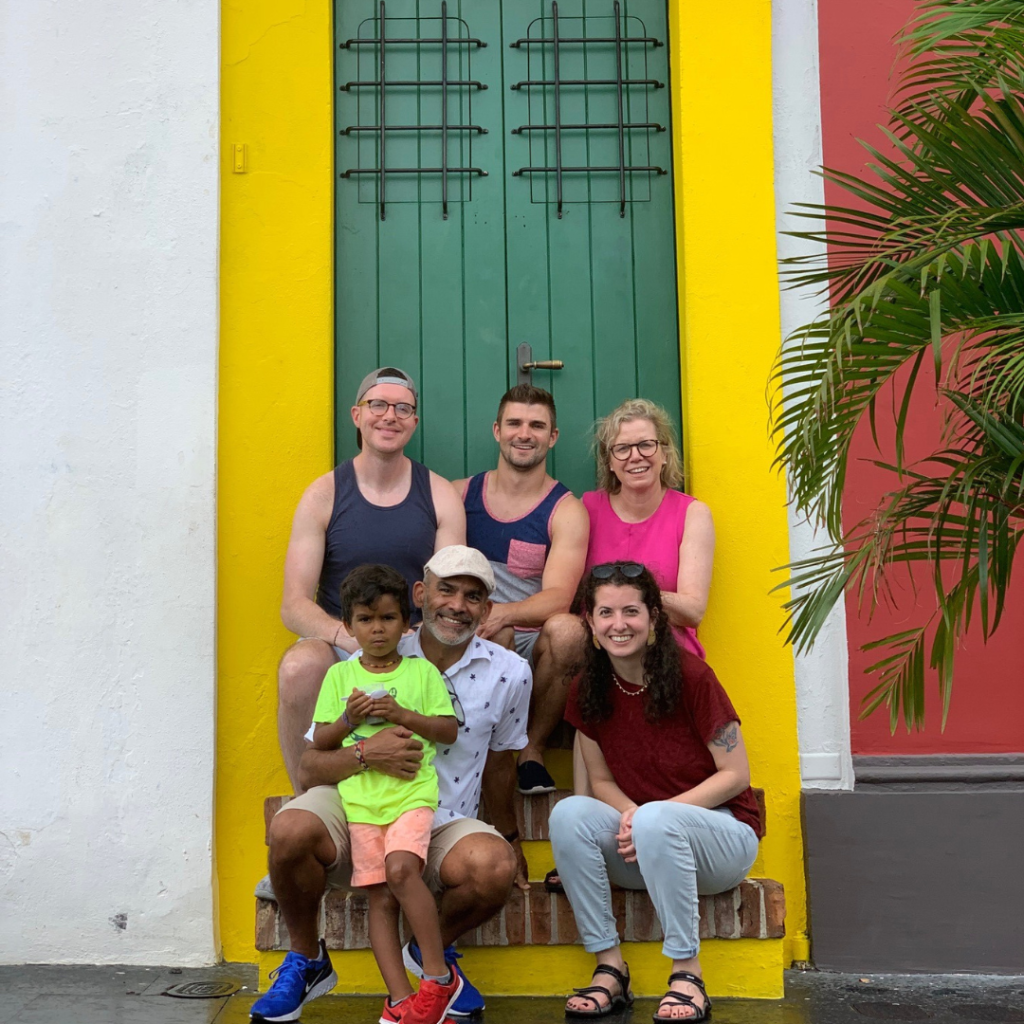
Tourism Cares was founded in 2003 to help get the US tourism industry back on its feet in the wake of 9/11. For ATA, it offered a way to turn our commitment to responsible travel into action. We began participating in 2005 and haven’t stopped.
Our first project was clearing out the forests surrounding George Washington’s Virginia homestead, Mount Vernon. They had been badly damaged by Hurricane Isabel and filled with debris over decades of neglect. In the space of a few days, the Tourism Cares volunteers did work that would have taken the site’s staff 20 years to complete, and allowed the forest to begin to regenerate.
The following year found us camping in FEMA tents in Biloxi, Mississippi, faced with the inconceivable destruction wrought by Hurricane Katrina. “What we saw in Mississippi,” says Chase Poffenberger, our Executive Vice President and one of the leaders of our Tourism Cares team, “It was unbelievable.” There our volunteers worked to rebuild three museums that had been absolutely devastated by the storm.
Since then, Chase and five or six staff members—they pick names out of a hat every year—have helped remove invasive species from a state park in Minnesota and restore Miami Marine Stadium, a historic seaside landmark that Chase remembers as “beautiful in its crumbling disrepair.” On Coney Island, they painted sites along the boardwalk, and they planted native seeds to revive forests in New Orleans. Each team can choose the nature of the work they do, whether it’s light or medium labor or skilled.
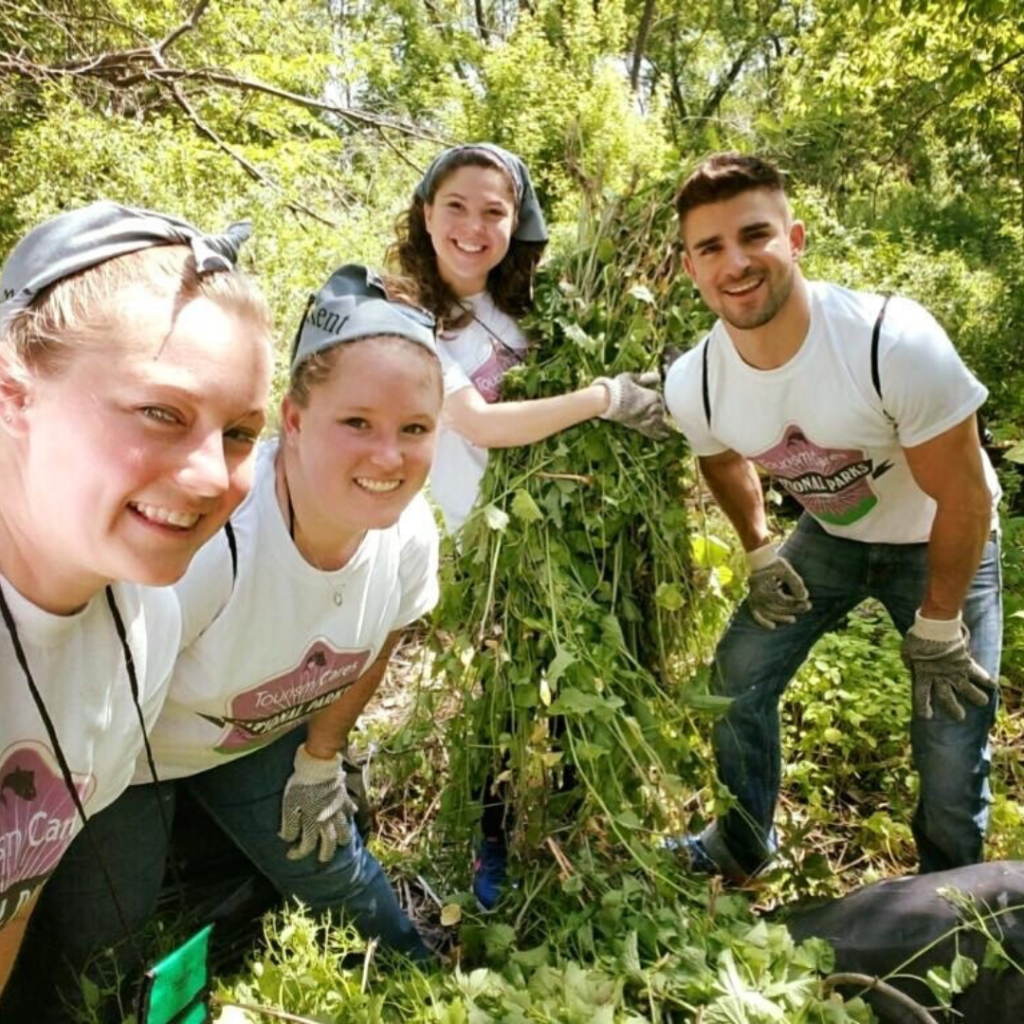
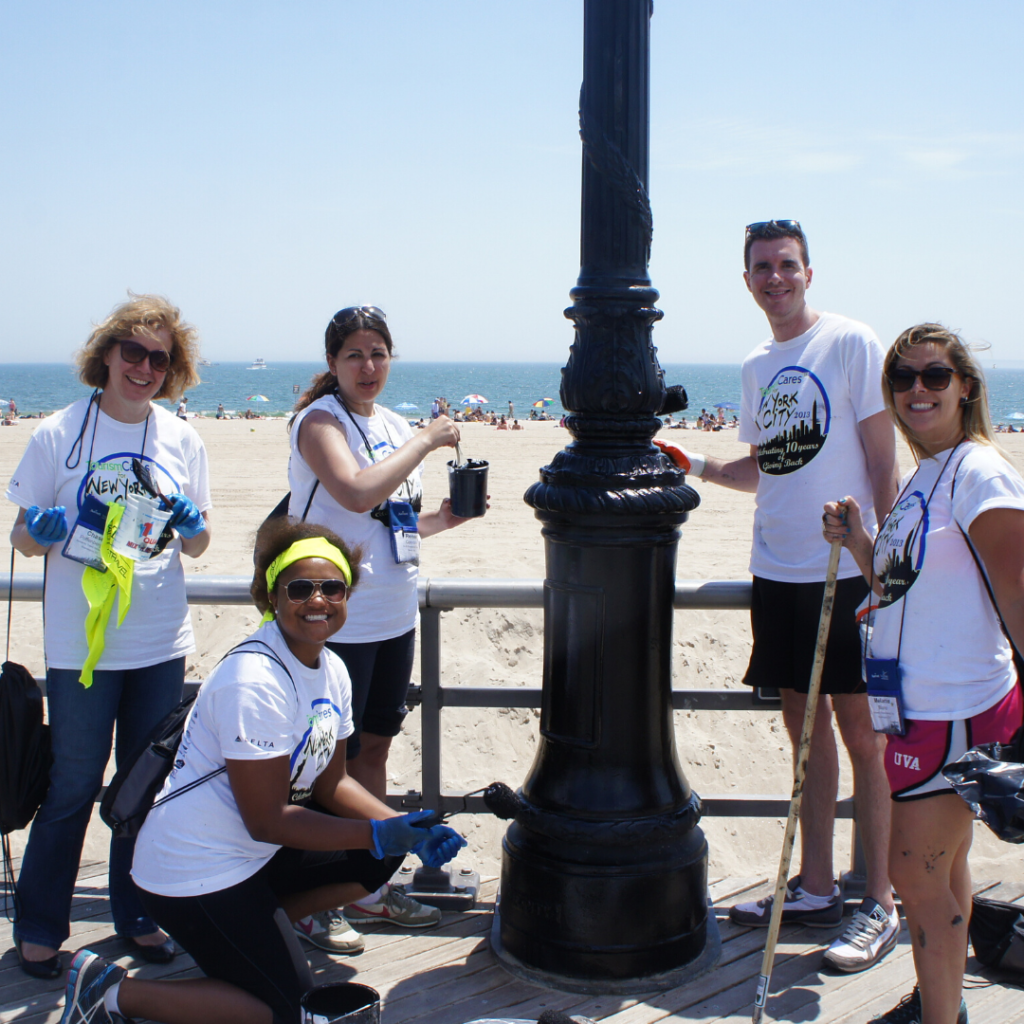
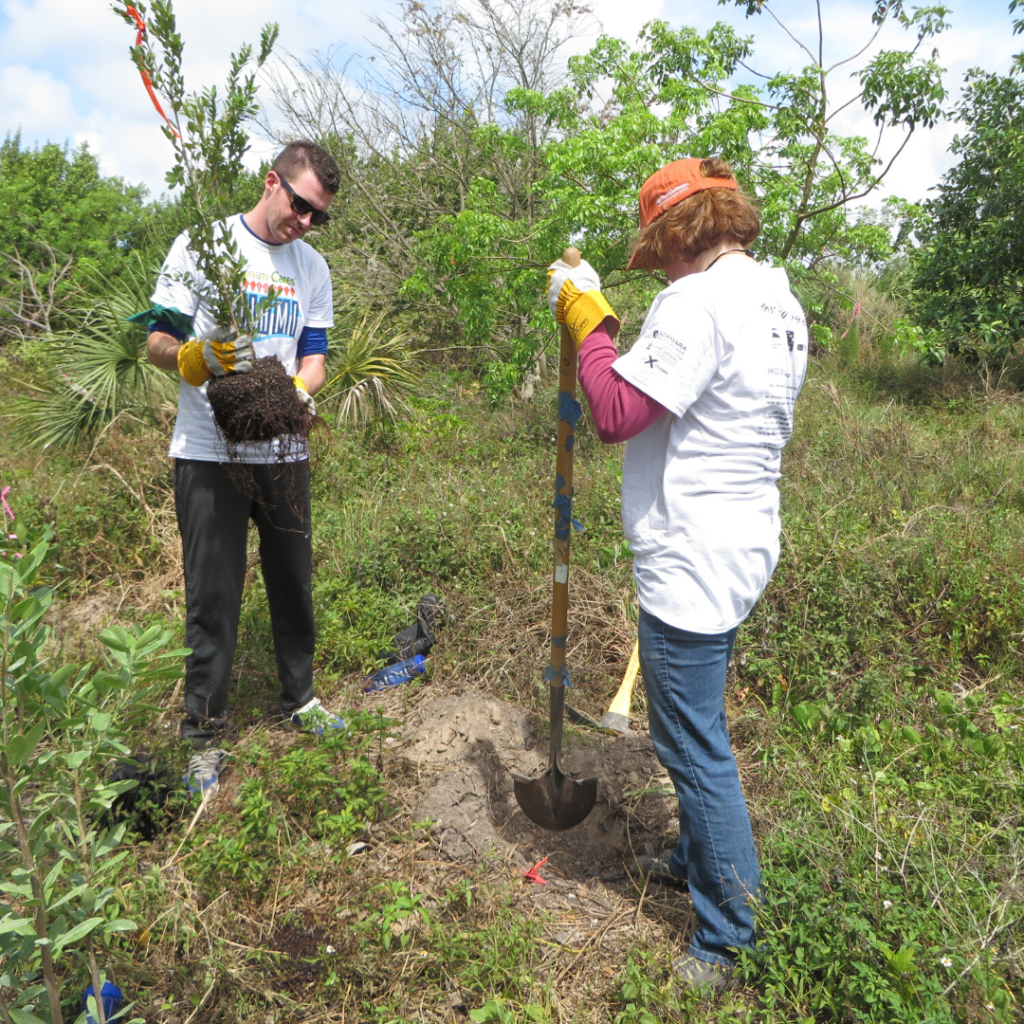
Working side by side to help a place in need is a great way to build relationships with other members of the industry and also within our team. The summits usually last a few days, but ATA staff add on an extra day to explore the sites of the region. Not only does it allow us to know the destination better, but it also gives us more focused time to bond with colleagues in a setting far different from the office.
Next year the Tourism Cares summit will be held in Colombia—its first outside of North America. ATA will be there. Says Chase, “We see Tourism Cares as one of our pillars as we invest in our field, our community, and our world.”

